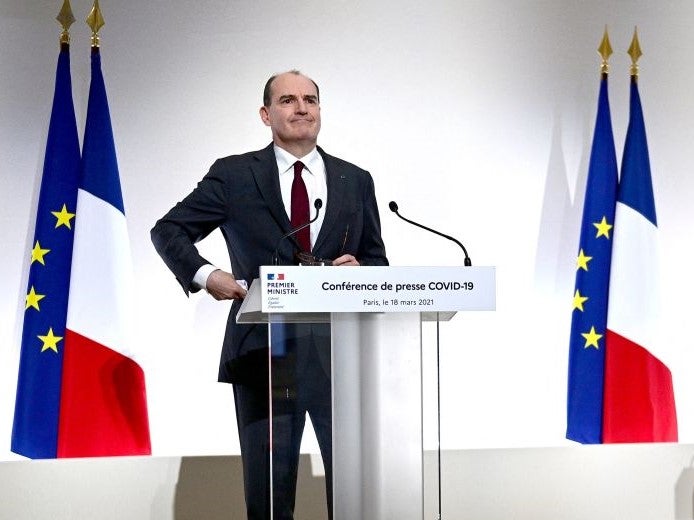Mea Culpa: Europe locks down amid ongoing scenes
John Rentoul on questions of style and usage in this week’s Independent


My campaign against “amid” is not going well, amid much shaking of the head. Let me just note the following, though: “Paris goes into lockdown amid soaring Covid cases.” The second part caused the first, so that could be: “Paris goes into lockdown as Covid cases soar.” And it is shorter.
We reported: “Dog owners are more scared of walking their pets now than this time last year amid fears of dognappers.” That is “because of”.
And: “Ocado has revealed a 40 per cent surge in retail sales amid a ‘dramatic and permanent’ shift towards online shopping since the pandemic struck.” That could be “during”.
What is going on? My campaign against “ongoing” is going badly too, or “ungoing” as I may soon have to describe it. Usually, we could just delete the word, as when we reported from the Netherlands, which has imposed a coronavirus curfew, that “there are ongoing protests against the measures”.
We had the “ongoing impact of Covid-19” twice, “the ongoing media circus surrounding Meghan Markle”, and in a film review a scene in which nurses try to “rescue their patients amid the ongoing destruction”.
Read more:
The last one was interesting, because “amid” seems to come with “ongoing” like a zombie form of journalese word association. At one point we managed to say that some countries had suspended use of the AstraZeneca vaccine “amid ongoing reviews”, which is a triple horror. Better to say something precise and concrete, such as “while side-effects are investigated”.
Step on the gas: Thanks to Philip Nalpanis, an assiduous reader, who noticed an unusual ambiguity in a business report supplied to us by the Press Association news agency. Costain, the construction company, reported a loss last year because of two contracts that turned out badly, one of which was described as “a gas station job in Peterborough and Huntingdon”. Were we – or the Press Association – using the US English for a petrol station, or did we mean something else? I had to look it up online to find out that we were talking about gas compressor stations, which help move gas around the national grid. We should have changed it to say that.
Without compare: In a comment article criticising the weak powers afforded to the new Office for Environmental Protection, we said: “It can’t issue fines, and its budget and board members are determined by government. Comparative bodies are not hamstrung in this way.” The usual word to mean “bodies that are able to be compared with it” would be “comparable”, whereas “comparative bodies” would mean “bodies that do the comparing”. Thanks to Philip Nalpanis again.
Matchmaking: In an analysis of the government’s green policies, we said: “The Treasury’s interim Net Zero Review raised hopes among some of a more long-term, less cheese-pairing approach.” Thanks to Roger Thetford for pointing out that we meant “cheese-paring”, an antique figure of speech that means miserly. To pare something means to trim it, or cut off the outer layer, as of the rind of cheese; the metaphor of miserliness is either from surviving on cheese-parings, or from hoarding cheese by slicing it thinly. Nothing to do with matching different cheeses.
Join our commenting forum
Join thought-provoking conversations, follow other Independent readers and see their replies
Comments